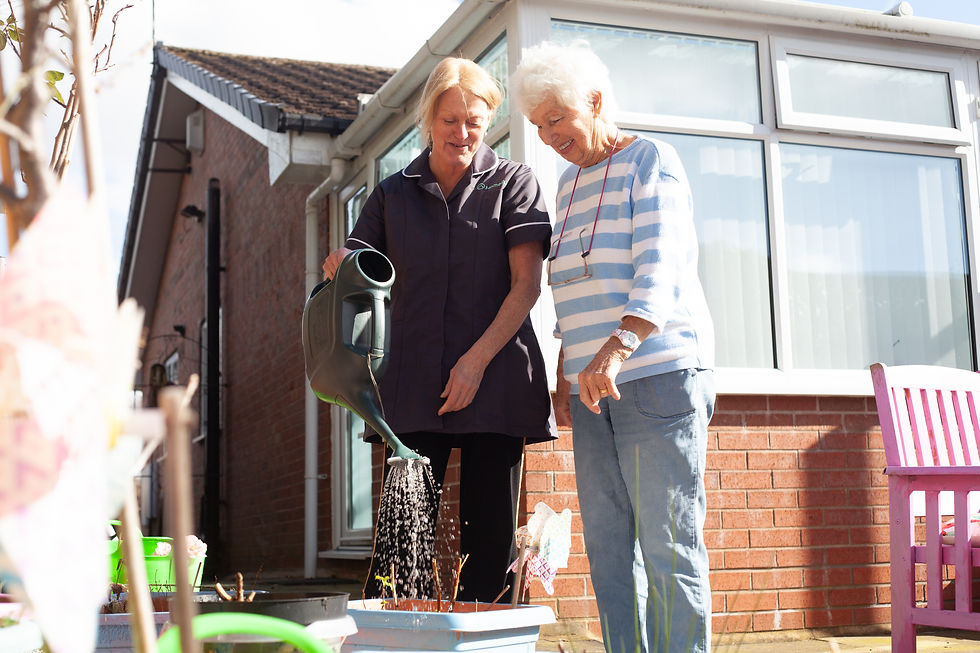Technology That Can Help Fall Risks
- Homelium

- Apr 14, 2025
- 3 min read
Updated: Jun 17, 2025
Falls are a major concern for our elderly loved ones, especially as they experience changes in strength, balance, and coordination. According to the NHS, 30% of adults over 65 who live at home are at high risk of falls. As our population continues to age, ensuring their safety while promoting independence is more important than ever. Fortunately, with technology advancing there is now more tech available to help reduce the risk of falls and provide both peace of mind to our elderly loved ones and their families.

Fall Detection Systems
Fall detection systems are one of the most essential technological innovations when it comes to elderly safety in their home. These devices use sensors and motion detection technology to monitor an individual’s movements and identify sudden falls. If a fall is detected, the system can automatically alert caregivers or emergency services, ensuring that help is on the way, even if the person is unable to call for assistance themselves.
Many wearable devices, like smartwatches and pendants, have built-in fall detection features. These gadgets use accelerometers and gyroscopes to detect changes in motion and automatically trigger an alert if a fall is suspected. Life Line24 is an example of this as it is a personal alarm systems designed to help elderly or vulnerable individuals stay safe and independent at home by connecting them to a 24/7 monitoring service via a pendant or base unit.
Some devices Apple Watch and Fitbit, also offer additional features, such as heart rate monitoring, that can help caregivers keep track the individual’s overall health.
Smart Home Sensors
Motion sensors and smart cameras can track movement within a home and alert caregivers if irregularities or falls occur. Some systems, like the Canary Care sensor system, use AI to detect unusual movements, such as sudden collapses, and automatically notify emergency services. Smart lighting, such as Hive or Philips Hue, can also prevent falls by illuminating pathways at night when movement is detected.
This can be a great idea for people who feel their loved ones are still independent but also are wary of them falling in their home.
GPS-Enabled Emergency Response Systems
For the elderly individuals who remain active outside their homes, GPS-enabled devices such as the Taking Care Anywhere alarm provide location tracking in case of emergencies. If a fall occurs away from home, the device can notify caregivers and provide real-time location data to ensure quick assistance.
This can be great for elderly people who may have dementia as if they ever become lost or confused of their location, the GPS will be able to track their location and the caregiver will be able to find them safely.
Smart Flooring and Fall Prevention Mats
Smart flooring solutions and pressure-sensitive fall mats can detect when a person falls and send alerts to caregivers or emergency responders. Some advanced versions, such as the Smart Floor from SensorCare, can even assess weight distribution and predict fall risks before they happen.
For our elderly loved ones who are still independent enough to stay in their home, technology can be a helping hand for their family for peace of mind. With the busy life that comes with families, it is handy for us to be able to check in with our loved ones and technologies like smart home sensors or camera systems allows us to check in when we may be busy.
To receive a free home care fall risk assessment or to chat to a professional about home care that could be right for your loved one, please feel free to call us on 0333 3448 677.




Comments